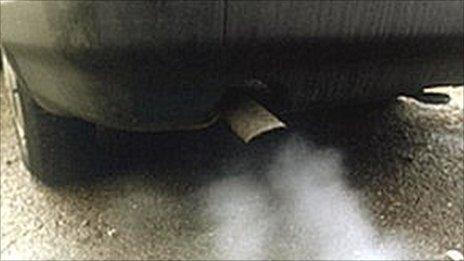Singapore smog - the health impact
- Published
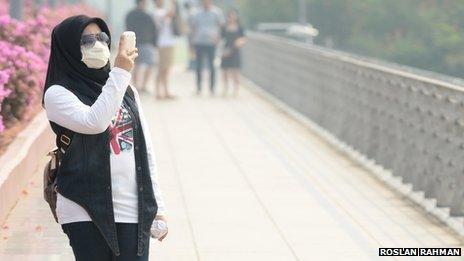
Young and old are wearing masks to protect themselves from the toxic smog
The smog that has enveloped Singapore, Malaysia and parts of Indonesia this week has reached dangerous new levels, prompting the Singaporean government to warn that the smoky haze "may be life threatening" to vulnerable people.
The smog is caused by smoke from forest fires in Sumatra, which has blown east over Malaysia and Singapore.
According to Prof Roy Harrison, professor of environmental health at the University of Birmingham, this type of air pollution can be very unpleasant.
"It's quite different to traffic pollution, but equally toxic.
"The particles in the air are mostly made up of carbon compounds and sooty material and there will be nasty acrid gases in the smoke."
The immediate effects of smog can include problems with breathing, wheezing, coughing and watery eyes.
Dr Keith Prowse, from the British Lung Foundation, says the concentration of the current smog means it will probably affect everyone in some way.
"It looks highly irritant to the eyes, nose and chest - and people may then develop a cough or chest symptoms."
In the longer term, prolonged exposure to air pollution of any kind can have an impact on human health and reduce life expectancy.
At risk
The World Health Organization says air pollution is a significant risk factor for a number of health conditions including respiratory infection, heart disease, and lung cancer - but there are certain groups who are particularly at risk.
Elderly people and those with respiratory illnesses, such as asthma, are vulnerable when smog hits because their lungs are less able to deal with the pollution.
They are more likely to be admitted to hospital, and for those who are already sick, the smog is an additional stress factor.
People with asthma may find their condition worsens and they need to take more medication.
Children are thought to be susceptible to the dangers of air pollution because they spend more time outdoors and breathe in more air per unit of body weight.
Prof Harrison says younger adults can be affected too.
"We do know that exposure to particles in air pollution affects the rhythm of the heart.
"This could affect people in their forties who are beginning to have heart conditions which they may not be aware of."
Repeated exposure to air pollution caused by car fumes is known to carry risks for the heart, as previous studies show.
Recent research led by Dr Krishnan Bhaskaran, a statistical epidemiologist from the London School of Hygiene and Tropical Medicine, discovered that high pollution events could trigger heart attacks in people who were already vulnerable.
Another recent study from Edinburgh found that air pollution from diesel exhaust fumes has an impact on the heart and blood vessels, potentially increasing the chance of blood clots forming in the arteries.
Mask use
Singapore's prime minister said that the smoky haze could remain in place for weeks and possibly until September or October, when the dry season ends in Sumatra.
Prolonged exposure to the smog will mean prolonged health risks for elderly and vulnerable people in an urban area where normal pollution levels are quite high.
In the meantime, the advice is to stay indoors when possible, where pollution levels are lower, and limit unnecessary physical activity to reduce breathing in dirty air.
The face masks which are in high demand in Singapore can protect against the worst of the smog.
But Dr Bhaskaran says they are unlikely to provide total protection.
"The masks may be sufficient to keep out some particles, but other gases would go straight through them."
The British Lung Foundation agrees: "The use of masks is not recommended; they are often ineffective and may make breathing more difficult."
- Published21 June 2013
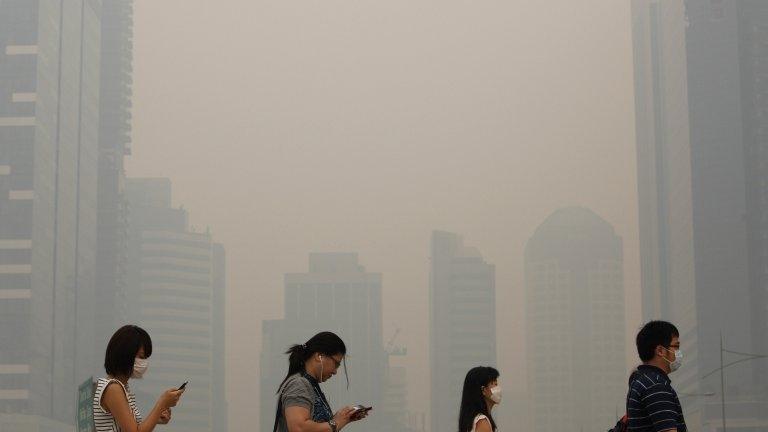
- Published18 June 2013
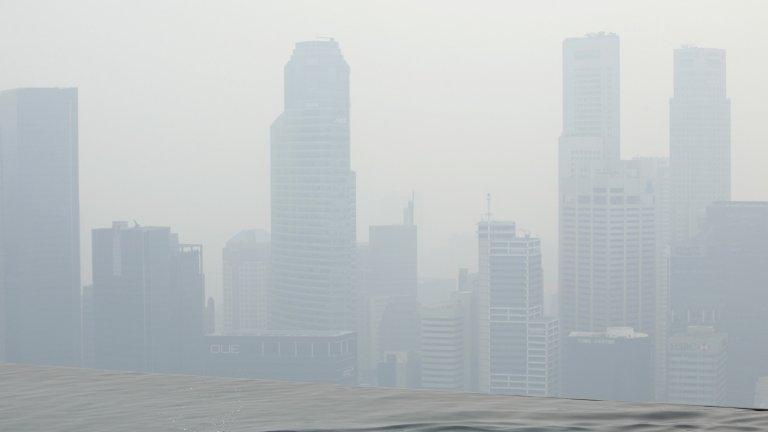
- Published18 June 2013
- Published4 September 2023
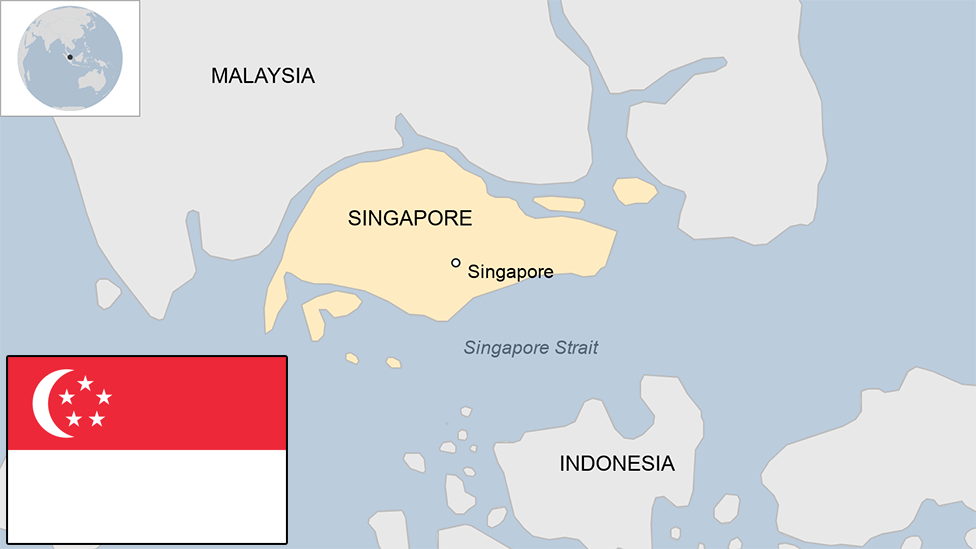
- Published21 September 2011
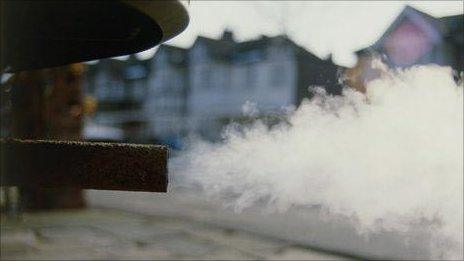
- Published14 July 2011
